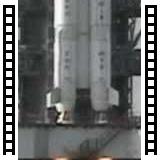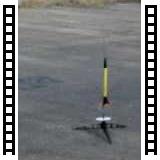www.timesofearth.com NEW DELHI, INDIA -- A rocket carrying an Indian communications satellite exploded just after lift-off on Saturday, in the second launch failure for India's space programme this year. The Geosynchronous Satellite Launch Vehicle (GSLV) exploded in the first stage of flight, leaving a trail of smoke and fire behind it. It had just lifted off from the Sriharikota space centre on Saturday in Andhra Pradesh state, and was carrying a GSAT-5P communications satellite. K Radhakrishnan, chairman of the Indian Space Research organisation (ISRO), said the rocket developed an error 47 seconds after initiating lift-off and lost command, leading to a higher angle in the flight. "That caused a higher stress, breaking up the vehicle," he said. He also said that the cause of the crash needed to be looked into in detail. A similar rocket on a developmental flight plunged into the Bay of Bengal in April. The ISRO said that accident was caused by a rotor seizing and a rupture in the turbine casing, probably due to excessive pressure and thermal stresses. Yashpal, a retired Indian scientist and independent commentator, said he was very disappointed by Saturday's failure, but that other countries have also experienced such problems. India is planning its first manned space flight in 2016. An Indian satellite launched in 2008 to orbit the moon was abandoned last year after communication links snapped and scientists lost control of the spacecraft. Since 1994, India's space ...



























